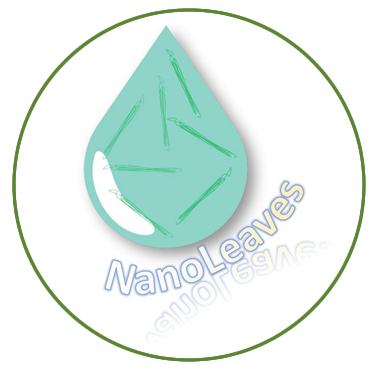
NanoLeaves Lab is a group of synthetic chemists settled at the Department of Chemistry and Industrial Chemistry of the University of Pisa. The research activity fits in the fields of Organic Chemistry and Materials Science. At NanoLeaves Lab, we develop new materials and explore their new and exciting applications in the fields of Chemistry, Technology, and Optoelectronics. We are interested in the preparation and functionalization of organic materials including biomaterials from natural sources, with an eye to nanocellulose and cellulose nanocrystals and to other biopolymers.
LATEST BLOG POST
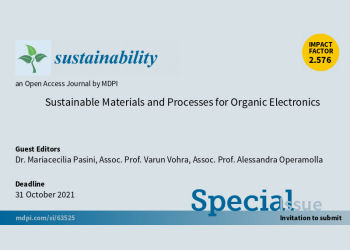 Dr. Mariacecilia Pasini, Prof. Varun Vhora and Prof. Alessandra Operamolla are the Guest Editors of the special Issue entitled “Sustainable Materials and Processes for Organic Electronics” proposed for the journal Sustainability (Publisher MDPI) with deadline October 21st 2021. The special issue will put chief attention to sustainable materials, processes, energy production and devices linked to the world of thin film organic and non organic electronics. The issue represents a nice opportunity to collect contributions by researchers from all over the world, showing the current trends of the topic.
Dr. Mariacecilia Pasini, Prof. Varun Vhora and Prof. Alessandra Operamolla are the Guest Editors of the special Issue entitled “Sustainable Materials and Processes for Organic Electronics” proposed for the journal Sustainability (Publisher MDPI) with deadline October 21st 2021. The special issue will put chief attention to sustainable materials, processes, energy production and devices linked to the world of thin film organic and non organic electronics. The issue represents a nice opportunity to collect contributions by researchers from all over the world, showing the current trends of the topic.
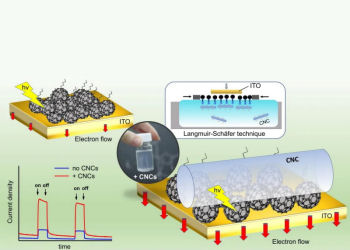 A new paper, released in 2021, collects our results on the electrochemical and physico-chemical investigation performed on Langmuir-Shaefer co-deposited films of sulfated cellulose nanocrystals and fulleropyrrolidines (FP). The work is done in collaboration between the University of Pisa, the University of Salento and the University of Trieste, and extends the results and the comprehension on these exciting new hybrid films, previously presented for the first time on the journal Carbon in 2020 by the same group of investigators.
A new paper, released in 2021, collects our results on the electrochemical and physico-chemical investigation performed on Langmuir-Shaefer co-deposited films of sulfated cellulose nanocrystals and fulleropyrrolidines (FP). The work is done in collaboration between the University of Pisa, the University of Salento and the University of Trieste, and extends the results and the comprehension on these exciting new hybrid films, previously presented for the first time on the journal Carbon in 2020 by the same group of investigators.
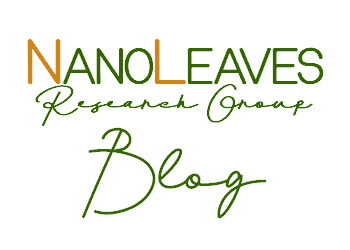 Last November 21st 2020, I was invited by the Alumni group of Prof. Sabu Thomas from Mahatma Gandhi University (MGU), Kottayam, Kerala, India to participate in a global party to celebrate the brilliant career of Prof. Thomas and his 60th anniversary. Prof. Sabu Thomas is presently Vice Cancellor of the Mahatma Gandhi University in India and is a researcher whose achievements have had and will have a great impact on the scientific community, especially in the fields of materials and polymers chemistry and of nanotechnology.
Last November 21st 2020, I was invited by the Alumni group of Prof. Sabu Thomas from Mahatma Gandhi University (MGU), Kottayam, Kerala, India to participate in a global party to celebrate the brilliant career of Prof. Thomas and his 60th anniversary. Prof. Sabu Thomas is presently Vice Cancellor of the Mahatma Gandhi University in India and is a researcher whose achievements have had and will have a great impact on the scientific community, especially in the fields of materials and polymers chemistry and of nanotechnology.
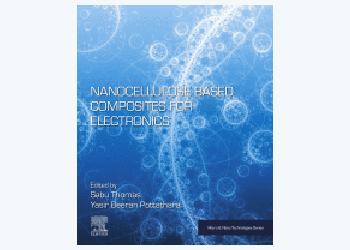 A contribution from the NanoLeaves Lab has been included as Chapter 3, entitled “Nanocellulosed-base functional paper” in the book “Nanocellulose Based Composites for Electronics”, published on October 9th 2020 by Elsevier.
A contribution from the NanoLeaves Lab has been included as Chapter 3, entitled “Nanocellulosed-base functional paper” in the book “Nanocellulose Based Composites for Electronics”, published on October 9th 2020 by Elsevier.
NANOLEAVES - Research Group at the Department of Chemistry of the University of Pisa
Via Giuseppe Moruzzi, 13 - 56124 Pisa, Italy
Admin LogIn/LogOut | Privacy Policy![]()



